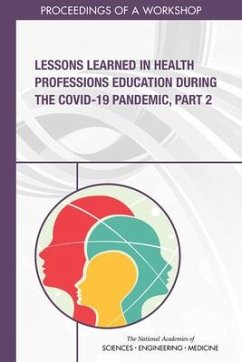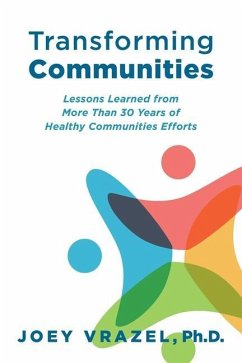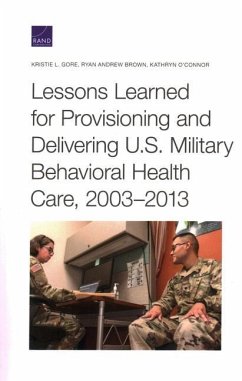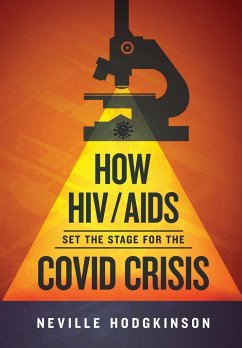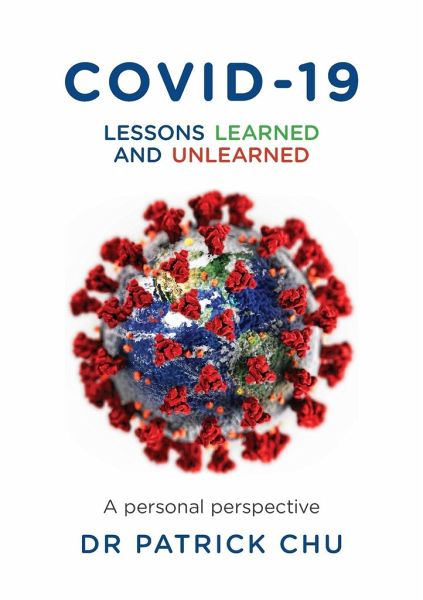
COVID-19 - Lessons Learned and Unlearned
A Personal Journey from East to West
Versandkostenfrei!
Versandfertig in 1-2 Wochen
12,99 €
inkl. MwSt.

PAYBACK Punkte
6 °P sammeln!
Through the author's personal experience, he makes some observations on the ways different countries dealt with this crisis differently, a crisis which has such a devastating economic and human impact. It is a global transformative event and is the first global health crisis since WW2. The author touches on the extensive initial debates on the use of masks, the public panic, and the governments' uncertain response in the initial stages in most countries, leading to the issues of herd immunity, the ways to diagnose the infection and trace the carriers, and the race on the development of a possi...
Through the author's personal experience, he makes some observations on the ways different countries dealt with this crisis differently, a crisis which has such a devastating economic and human impact. It is a global transformative event and is the first global health crisis since WW2. The author touches on the extensive initial debates on the use of masks, the public panic, and the governments' uncertain response in the initial stages in most countries, leading to the issues of herd immunity, the ways to diagnose the infection and trace the carriers, and the race on the development of a possible vaccine at a speed never imagined before in human history. The author also points out the interactions between scientists, epidemiologists, clinicians, politicians and economists in how to handle the pandemic and how best to protect ourselves and the public in dealing with the next waves. There are real lessons to be learned while some previous habits must be unlearned. As a result of these debates, a New Normal is emerging. The author describes how this New Normal can change aspects of our lives, quite possibly permanently, in areas such as medical care, education, employment, the way we interact socially, and our leisurely pursuits. Finally, the author discusses how these debates have rekindled the arguments on the pros and cons of globalization, the logistics of supply chains, the role of the WHO, and most regrettably, the politicization of Covid-19. What may be accepted as the global standards in the past may now be regarded as global impediments or even threats.



